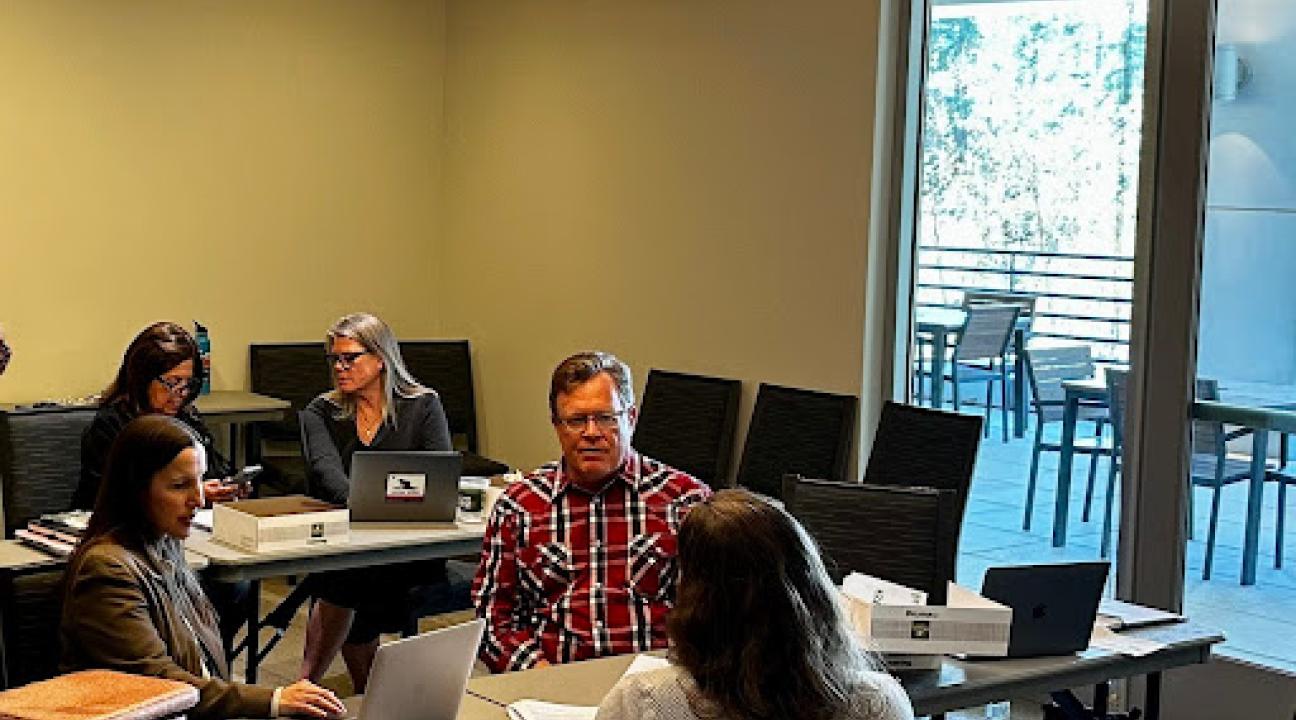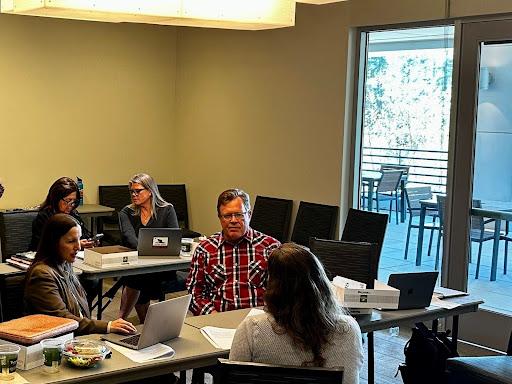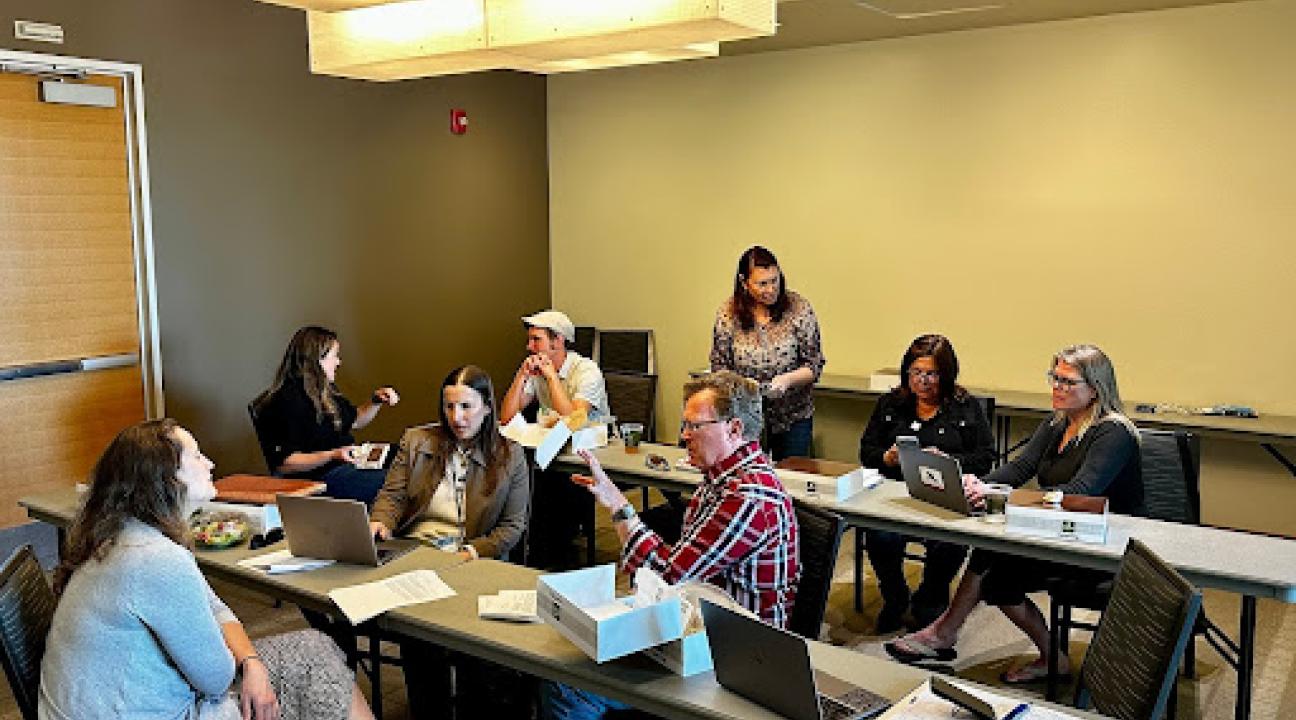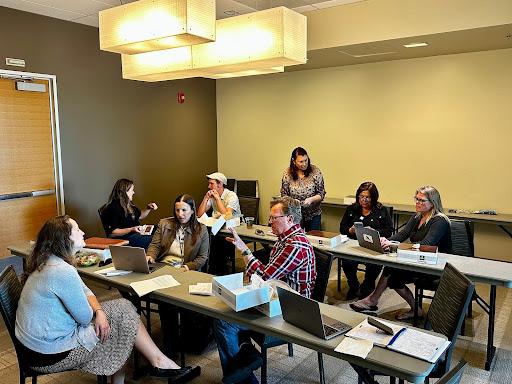Engaging Education: SSU Faculty discuss Service-Learning Models for Their Classrooms
Sonoma State instructors and community partners attended a workshop presentation on service-learning, covering methods of introducing structured community-based programs into their classes. The presentation covered the significance of service-learning and was presented by Dr. Melissa Garvin, Faculty Director of Service-Learning. Her work focuses specifically on service-learning and forming effective student-instructor relationships. Missy defined service-learning and covered ways to develop and implement service-learning in each of the professors’ classes. This workshop focused on incorporating service-learning into the faculty's classes and the impact it would have on their coursework.
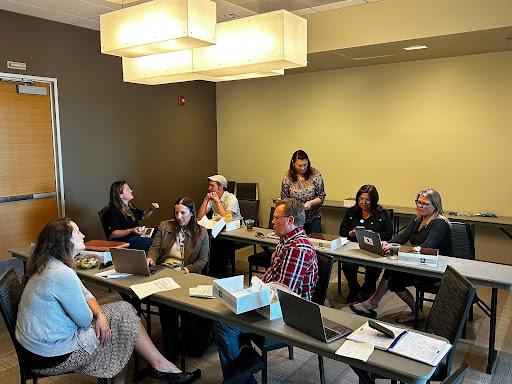
Presenter Dr. Melissa Garvin joins faculty in their
service-learning meetings
Service-learning is a pedagogy that utilizes community service projects within the context of an academic course. Academic service-learning distinguishes itself from standard learning experiences in several ways, including partnership-based community service, structured activity, and critical student reflection. This gives students opportunities to recognize their impact in the community and obtain hands-on experience.
Methods of maintaining student engagement throughout service-learning classes were presented, as well as discussing tools like set hours or having detailed reflections at the end of a project. During the presentation, the faculty observed methods of service-learning and compared them to standard work you would usually see in the classroom, focusing on civic engagement and the impact on the students and society. By having these elements in their respective syllabi, the professors would have different class structures aimed at offering great hands-on activities that promote civic engagement. Dr. Garvin then encouraged instructors to think of events or ideas that could be a great fit for their classes and curriculum.
Workshop participants were reminded about one important question: How do students uniquely benefit from your service-learning classwork? The faculty went over class assessment options like learning objectives, group participation, and meeting the needs of the community. Dr. Garvin reiterated the importance of civic responsibility and critical reflection through her slides. The structured goals for the instructor’s classes would include deep thinking, and reflecting on a valuable experience where the work's significance and impact are recognized.
Once the presentation was over, the faculty got into groups and discussed plans for their own potential syllabi, proposing different ways to change their respective class structure, all while focusing on the objectives and the meaning of their class and why it matters that they’re incorporating service-learning.
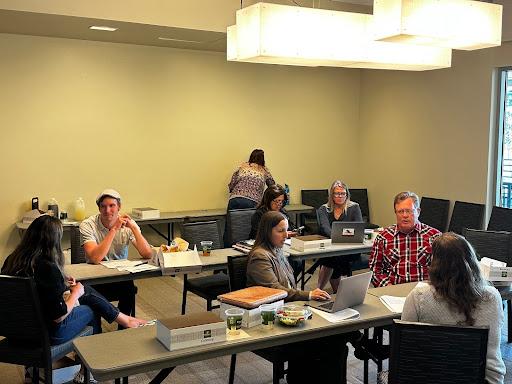
Faculty in Russian River Valley room for
service-learning workshop
As an observer, it was great to get an insider view into what it’s like for instructors and faculty to develop class structure and learn more about how to make an impact with their curriculum. It’s always nice to see efforts being made by all the important people behind the scenes.
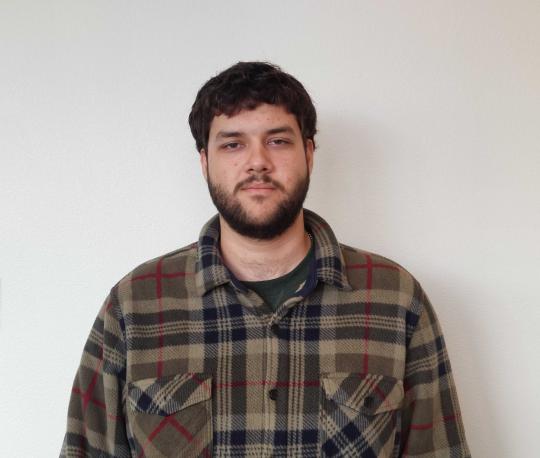
Author: Nathan Molina


